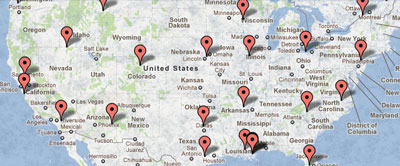Home / Directory Search / Audrey Kurth Cronin
My current research focuses on the future of war and conflict. My expertise is in the changing character of war and nonstate actors, including terrorist groups. I have published four books, including How Terrorism Ends (Princeton), and a large number of peer-reviewed and policy-relevant articles on security and new technologies. My career combines academic positions and government service. I believe strongly that academics need exposure to the policy-making process, not only to hone their knowledge and skills but also to engage in public service. I joined American University in August 2016 after five years at George Mason University. Prior to that, I was a faculty member and director of the core course on military strategy at the U.S. National War College (2007-2011), and Academic Director of Studies for the Oxford/Leverhulme Programme on the Changing Character of War (2005-7). Before that, I was Specialist in Terrorism at the Congressional Research Service, advising Members of Congress in the aftermath of 9/11. I have also served in the Executive branch, including in the Office of the Secretary of Defense/Policy; the Office of the Secretary of the Navy; and the American Embassy in Moscow. I regularly consult with agencies in the Executive and Legislative branches and am personally dedicated to teaching, research, and public service.
Substantive Focus:
- International Relations PRIMARY
- Defense and Security SECONDARY
- Law and Policy
- Governance
- Science and Technology Policy
Theoretical Focus:
- Policy Analysis and Evaluation PRIMARY
- Agenda-Setting, Adoption, and Implementation SECONDARY
Keywords
COUNTERTERRORISM STRATEGY GRAND STRATEGY WAR TERMINATION FUTURE WAR NEW TECHNOLOGIES DRONES CYBERSECURITY TERRORISM POLITICAL VIOLENCE NONSTATE ACTORS
| Citation: | Cronin, Audrey Kurth. 2016. "Neutralization as a Sustainable Approach to Afghanistan." in Sustainable Security: Rethinking American National Security Strategy, edited by Jeremi Suri and Benjamin Valentino (Oxford University Press). |
| Citation: | Cronin, Audrey Kurth. 2015. "ISIS is Not a Terrorist Group: Why Counterterrorism Won't Stop the Latest Jihadist Threat." Foreign Affairs. 87-98. |
| Citation: | Cronin, Audrey Kurth. 2015. "The Strategic Implications of Targeted Drone Strikes for U.S. Global Counterterrorism." The Ethical, Strategic and Legal Implications of Drone Warfare. University of Chicago Press. |
| Citation: | Cronin, Audrey Kurth. 2007. “Studies in Counterterrorism: Russia and Chechnya.” Democracy and Counterterrorism: Lessons from the Past. Washington, D.C.: United States Institute of Peace. 383-424. |
| Citation: | Cronin, Audrey Kurth. 2008. “How Terrorist Campaigns End.” Chapter One in Leaving Terrorism Behind: Individual and Collective Disengagement. London: Routledge. |
| Citation: | Cronin, Audrey Kurth. 2011. “What is Really Changing? Change and Continuity in Global Terrorism,”The Changing Character of War. Oxford: Oxford University Press. |
| Citation: | Cronin, Audrey Kurth. 2012. “Surrender and Suicide Terrorism,” Why Fighting Ends: A History of Surrender. Oxford: Oxford University Press. |
| Citation: | Cronin, Audrey Kurth. (Forthcoming 2014). “The Strategic Implications of Targeted Drone Strikes for U.S. Global Counterterrorism,” The Ethical, Strategic and Legal Implications of Drone Warfare. University of Chicago Press. |
| Citation: | Cronin, Audrey Kurth. 2014. “The ‘War on Terrorism’: What Does it Mean to Win?” Journal of Strategic Studies 37 (2):174-197. |
| Citation: | Cronin, Audrey Kurth. 2013. “Why Drones Fail: When Tactics Drive Strategy.” Foreign Affairs 92 (4):44-54. |
| Citation: | Cronin, Audrey Kurth. 2010. “The Evolution of Counterterrorism: Will Tactics Trump Strategy?” International Affairs 86 (4):837-856. |
| Citation: | Cronin, Audrey Kurth. 2012. “U.S. Grand Strategy and Counterterrorism.” Orbis 56 (2):1-23. |
| Citation: | Cronin, Audrey Kurth. 2013. “How Global Communications are Changing the Character of War.” Whitehead Journal of Diplomacy and International Relations 14 (1):25-40. |
| Citation: | Cronin, Audrey Kurth. 2013. “Thinking Long on Afghanistan: Could It Be Neutralized?” The Washington Quarterly 36 (1):55-72. |
| Citation: | 2003. "Terrorist Motivations for Chemical and Biological Weapons Use: Placing the Threat in Context." CRS Report for Congress. Congressional Research Service: Library of Congress. |
| Citation: | 2003. "Terrorists and Suicide Attacks." CRS Report for Congress. Congressional Research Service: Library of Congress. |
| Citation: | 2003. "The 'FTP' List and Congress: Sanctioning Designated Foreign Terrorist Organizations." CRS Report for Congress. |
| Citation: | 2006. “Cybermobilization: The New Levee en Masse,” Parameters 36 (2):77-87. |
| Citation: | 2002. “Behind the Curve: Globalization and International Terrorism,” International Security 27 (3):30-58. |
| Citation: | 2006. “How al-Qaeda Ends,” International Security 31(1):7-48. |
| Citation: | 2010. “The Evolution of Counterterrorism: Will Tactics Trump Strategy?” International Affairs 86 (4):837-856. |
| Citation: | "Attacking Terrorism: Elements of a Grand Strategy. 2004. Washington, D.C.: Georgetown University Press. |
| Citation: | 2008. "Ending Terrorism: Lessons for Defeating al-Qaeda." IISS Adelphi Paper Series, Routledge. |
| Citation: | 2009. "How Terrorism Ends: Understanding the Declie and Demise of Terrorist Campaigns." Princeton University Press. |


